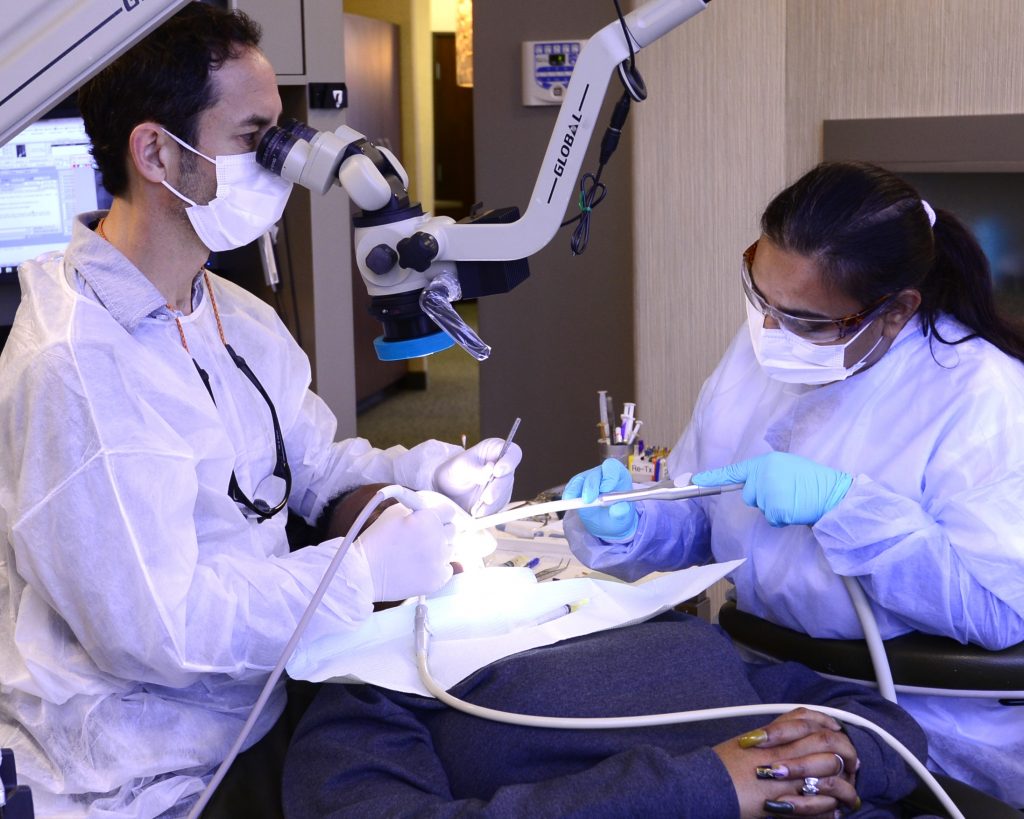Endodontists get a bad rap; after all, most patients aren’t too thrilled when they find out they need a root canal. If you’ve been told you need endodontic treatment, you might be a little worried, maybe even scared about what that means. The good news is that endodontists have plenty of tools available to make endodontic surgery much more comfortable than in the past. Here are answers to a few of the most common questions about endodontists:
What Is an Endodontist?
The most basic question you might have is, “what is an endodontist?” All dentists receive training in performing root canals in dental school. However, within the field of dentistry there are root canal specialists. These dentists are called endodontists and focus their dental practice exclusively on providing root canal, or endodontic treatment. To be able to perform endodontic therapy, endodontists must complete at least two additional years of training after dental school.
Root Canal Experts
- Endodontists make root canals easy
- Have extensive root canal training
- Also treat facial trauma
Why Do I Need Endodontic Treatment?
During endodontic therapy, endodontists treat the inside of the tooth. Under the enamel and a hard layer of dentin is a soft tissue called the pulp. The tooth pulp contains blood vessels, nerves and connective tissue. When the pulp tissue becomes inflamed or infected, it causes pain and may lead to a dental abscess. Endodontists remove the infected or inflamed pulp to relieve the discomfort and save the tooth.
In addition to endodontic treatment, there are several other dental problems that endodontists address, including:
- Endodontic retreatment
- Endodontic surgery to diagnose a problem not visible on X-ray or by nonsurgical endodontic treatment
- Apicoectomy (the most common type of endodontic surgery)
- Treatment for cracked teeth
- Treatment for a dental injury such as a dislodged or knocked out tooth or a root fracture

